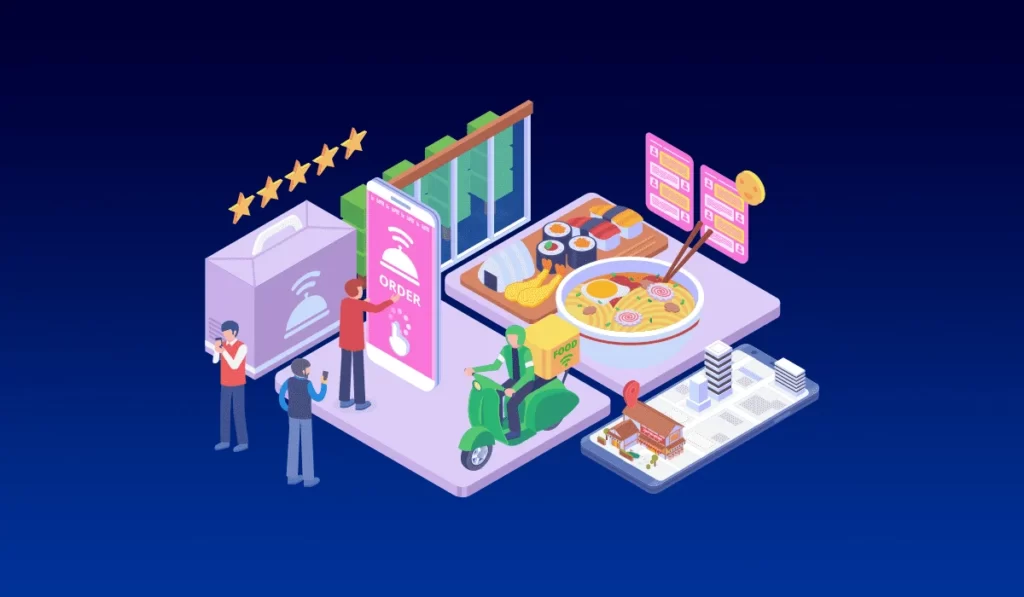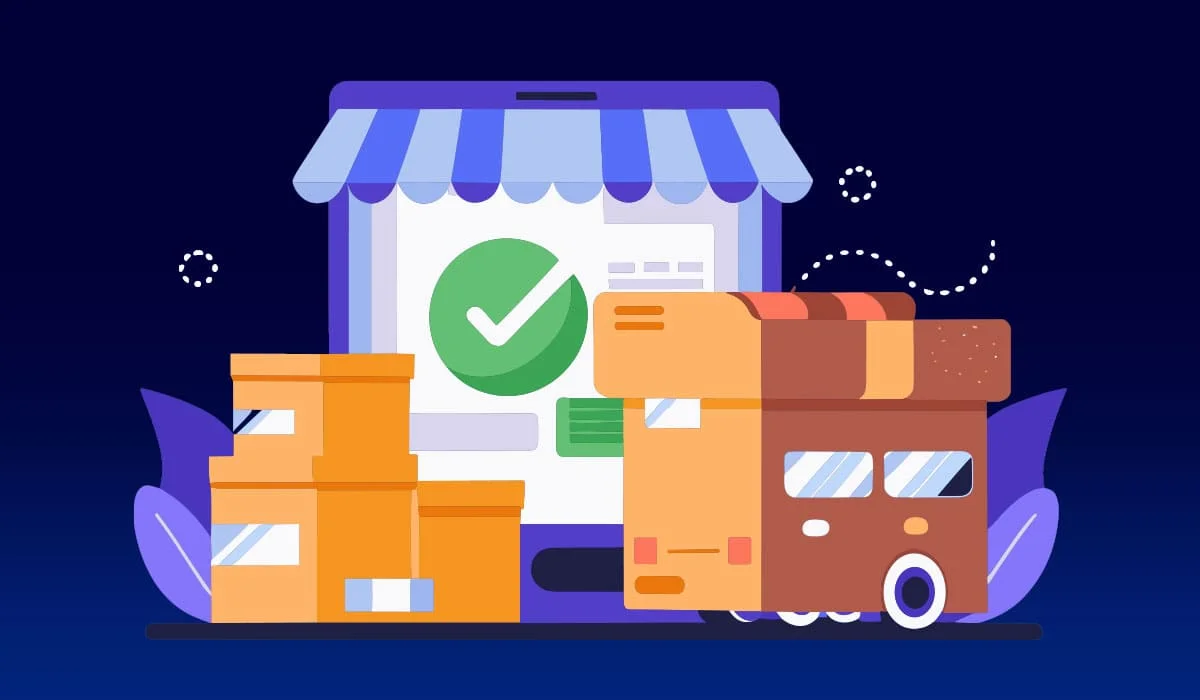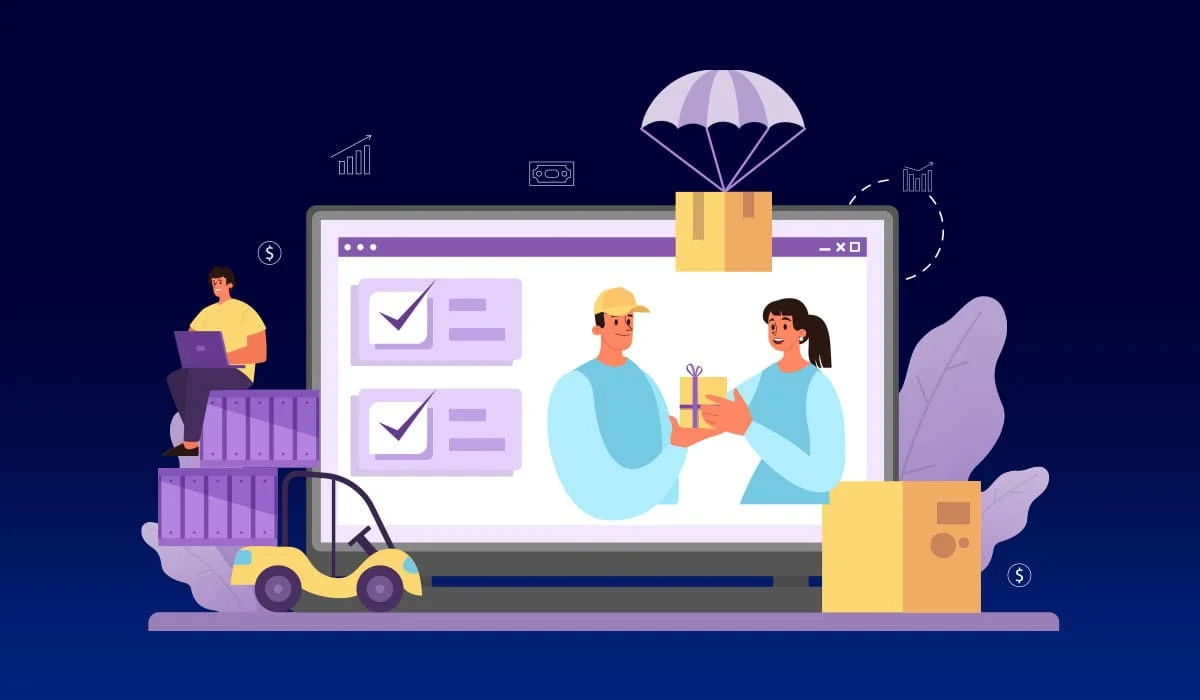Businesses are now able to carry out the same tasks that a conventional cash register would. For businesses with no set physical location, like market vendors or food trucks, it is especially useful because it enables them to interact with clients and complete transactions while they are in motion.
In order to deploy a mPOS system, a company must have access to the internet, a card reader capable of handling credit and debit transactions, and an application installed on the chosen device for conducting transactions.
By downloading a POS application and establishing a connection between the reader and the mobile device, users can effectively leverage the mPOS solution.
Furthermore, it is possible to enhance the mPOS setup by pairing it with supplementary point-of-sale hardware, such as a barcode scanner or a cash drawer.
Through this blog, we will take you through a detailed guide to mobile POS system for restaurants.
Content Index
- How Mobile POS Systems Work
- Benefits of Using Mobile POS
- Features to Consider While Choosing Mobile POS Software
- Final Thought

How Mobile POS Systems Work
A downloadable mobile app can turn any smartphone or tablet into a mobile point-of-sale device.
The seller sends a card reader to business owners who register with the app. This card reader plugs into the mobile device’s audio jack to process debit and credit card transactions.
Some providers of restaurant mPOS software also provide optional sleds, or hand-held docking stations, that let customers use their mobile devices to scan barcodes and print receipts.
Most mPOS systems are self-contained, meaning they integrate various components into a single unit.
Benefits of Using Mobile POS
The benefits of using a POS system are numerous. A guide to mobile POS system for restaurants is a game-changer that empowers businesses with seamless transactions, streamlined operations, and enhanced customer experiences. Below are some of the main benefits of using mPOS.
Better Customer Service
Enhanced customer service is arguably the primary advantage of utilizing a mobile point-of-sale system.
The software enables the establishment of customer profiles, facilitating the implementation of loyalty programs for frequent customers.
It assumes various responsibilities and capacities, from inventory checks to swiftly accessing customer information, thereby equipping your staff with essential real-time data to optimize customer experience.
Additionally, maintaining up-to-date software contributes to safeguarding your business and customer payment details.
Reliable and Efficient Transaction
In addition to boosting the overall efficiency of your payment system, a portable POS system offers a level of dependability that traditional POS systems lack.
Its extended battery life and numerous connectivity options eliminate the reliance on plugging in the POS machine or Wi-Fi to facilitate payment transactions.
This mobile POS system has the potential to revolutionize the entire process of retail transactions by minimizing inefficiencies related to payments and processing, ensuring that customers can make payments from any location within the store.
Moreover, tradespeople and contractors can leverage their portable point-of-sale systems to generate estimates, create invoices, gather customer information, and receive payments while working on-site, eliminating the complexities associated with billing procedures on subsequent days.
Accept Modern Methods of Payment
The demand for payment flexibility from customers is paramount. Traditional POS systems, even with their advanced registers, often fall short of accommodating emerging payment methods.
The integration of mobile technology enables diverse payment options, including cash, credit or debit cards, gift cards, coupons, and loyalty points.
Moreover, mPOS devices empower customers to utilize their smartphones for transactions, providing support for popular mobile wallets such as Apple Pay, and Samsung Pay.
Increased Mobility
The restaurant industry, in particular, stands to gain significant advantages from utilizing an mPOS system.
This technology is also suited for businesses on the move, such as food trucks or traveling artists. Firstly, mobile devices like phones and tablets offer unparalleled portability.
This allows for effortless movement within a restaurant or a physical store, enabling seamless transactions and enhanced customer service.
Moreover, the replaceability of phones and tablets is a notable advantage. In the event of any issues with the device, it can be quickly and cost-effectively replaced without disrupting the overall system’s functionality.
This ensures uninterrupted operations and minimizes potential downtime, ultimately benefiting the efficiency and productivity of the restaurant industry.
Proper Data Backup
One of the key benefits of using an mPOS system is the ability to ensure proper data backup.
By leveraging cloud-based storage and automatic synchronization, businesses can securely store transaction data, customer information, and sales reports, minimizing the risk of data loss and enabling easy access to essential information.
Features to Consider While Choosing Mobile POS Software
The guide to mobile POS system for restaurants serves as a valuable resource for businesses seeking to revolutionize their operations. Following are some of the features a mPOS system must have.
User-Friendly Interface
User-friendly features are vital for a mobile POS system. Intuitive navigation, clear buttons, and straightforward functions ensure that employees can quickly process transactions without wasting time on complex menu structures.
Furthermore, customizable shortcuts or favorites options can further enhance usability, allowing for seamless and efficient operations, even when dealing with a high volume of customers.
Security
Despite its position on the list, it is crucial not to underestimate the importance of security when using an mPOS system.
It is essential to have an mPOS solution that incorporates robust security measures and to prioritize additional security measures to safeguard sensitive data.
It is imperative to consistently use secure Wi-Fi connections and leverage the security features available on the devices themselves.
Neglecting data security can lead to severe repercussions, making it a matter that should never be overlooked.
Inventory Management
Employees in the restaurant industry despise the laborious procedure of manually counting inventories using paper with a pen.
It consumes time that could be spent assisting clients and generating sales. Ineffectiveness can negatively affect a company’s bottom line and profitability.
Fortunately, a mobile point-of-sale system enables staff to quickly track and confirm inventory using portable devices routinely updated with precise counts, streamlining and streamlining inventory management.
Should be able to Work Offline
The ability of an mPOS system to work offline is a critical feature. It ensures that your business operations can continue uninterrupted, even when the internet connection is unreliable or completely unavailable.
By storing transaction data locally on the device, the mPOS can still process payments, update inventory, and generate receipts, providing a seamless experience for both customers and employees.
Once the internet connection is restored, the system can automatically synchronize the offline data, ensuring data accuracy and keeping your business running smoothly.
Contactless Payments
Contactless payments in the MPOS system enable customers to make transactions by simply tapping their contactless-enabled cards or mobile devices on the MPOS device.
This technology uses near-field communication (NFC) to transmit payment information, offering convenience and speed securely.
With contactless payments, customers can complete transactions quickly, reducing queues and enhancing the overall shopping experience.
MPOS systems with contactless payment capabilities provide a seamless and efficient payment solution for businesses and customers alike.
Advanced Reporting
By choosing an mPOS system that aligns with your budget and service requirements, you gain access to advanced reporting capabilities.
These reports provide valuable insights into your sales, enabling you to make informed decisions regarding inventory management, capitalizing on trends, and optimizing resources during slower sales periods.
Leveraging these insights empowers you to strategically plan and adapt your business operations for maximum efficiency and profitability.
Additionally, mPOS systems often offer customizable reporting options to cater to your business needs, providing further flexibility and control.
Final Thought
In conclusion, this guide to mobile POS system for restaurant industry has highlighted the numerous benefits and functionalities that make it an indispensable tool for modern businesses.
From streamlining operations to enhancing customer experiences, a mobile POS system offers convenience, efficiency, and valuable insights through advanced reporting capabilities.
By implementing a mobile POS system tailored to the unique needs of the restaurant industry, businesses can optimize their operations, boost profitability, and stay ahead in the competitive landscape.
Want to learn more about Restaurant POS software? Check out our related blog topics:





